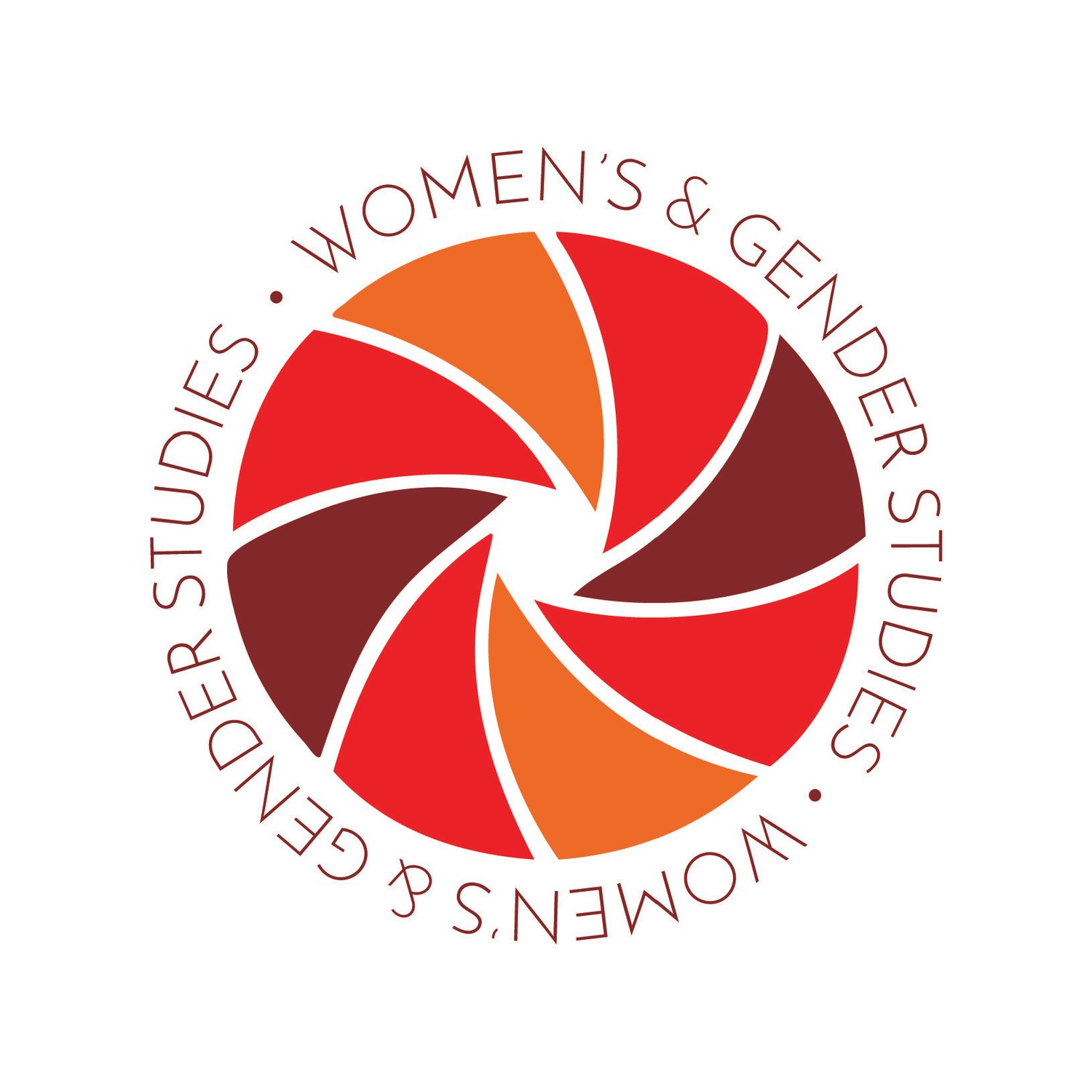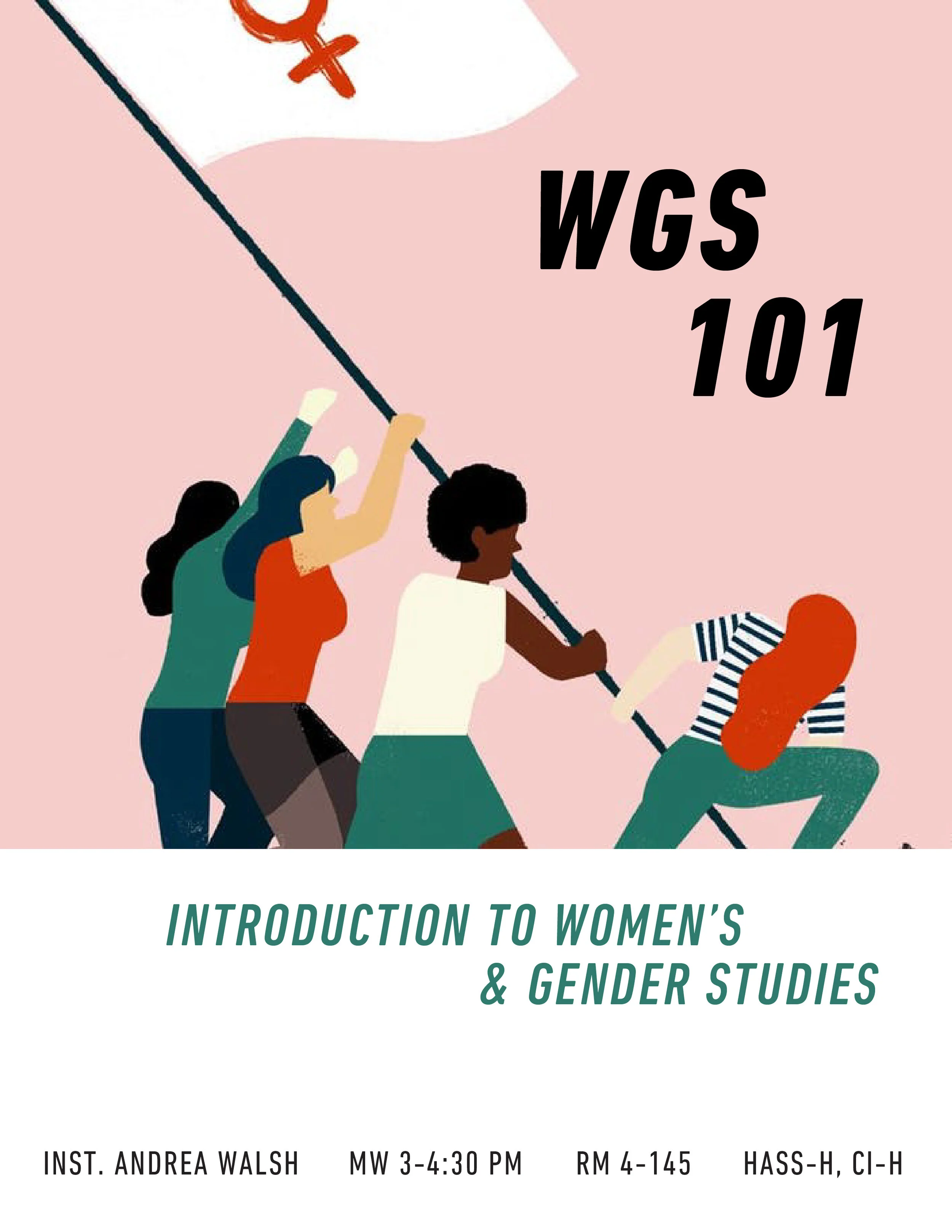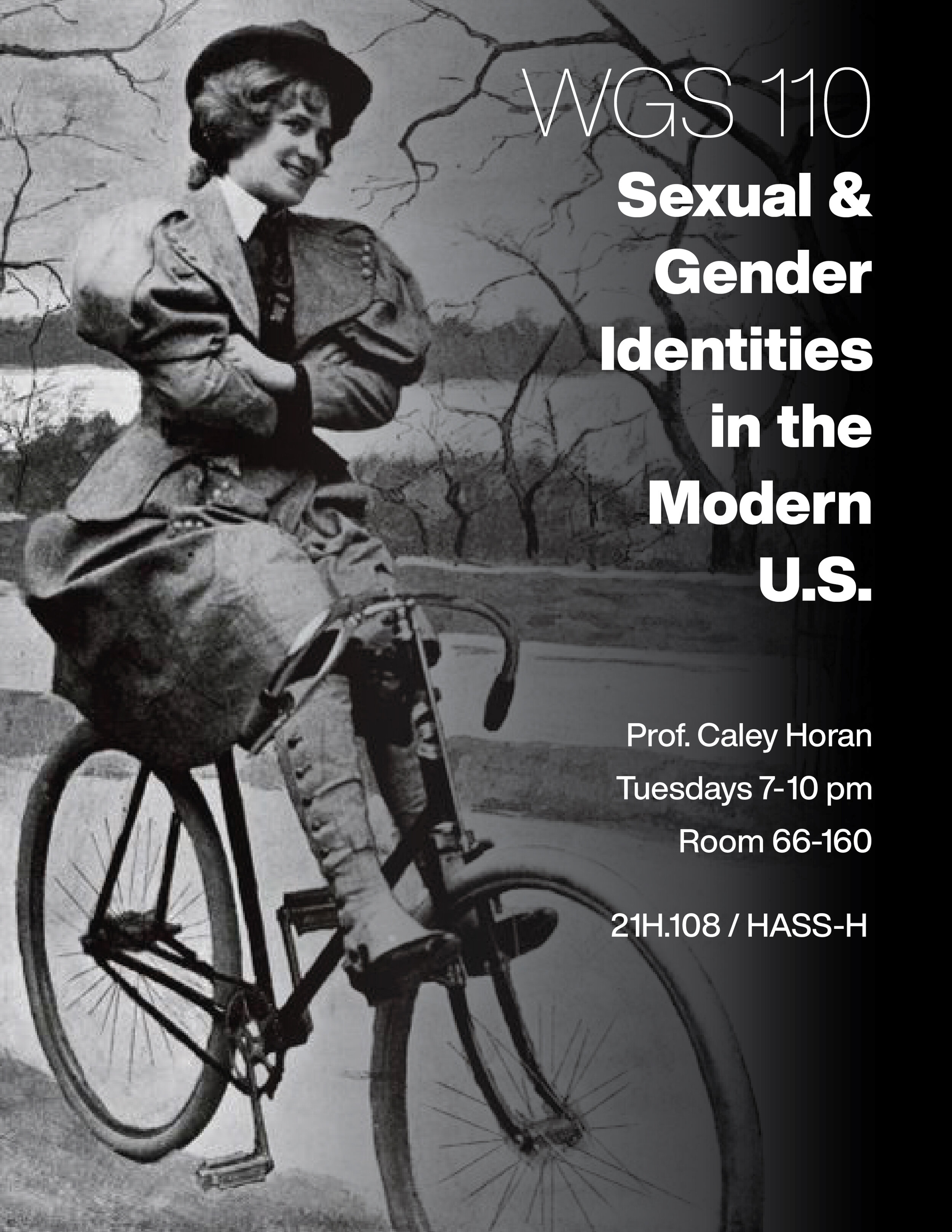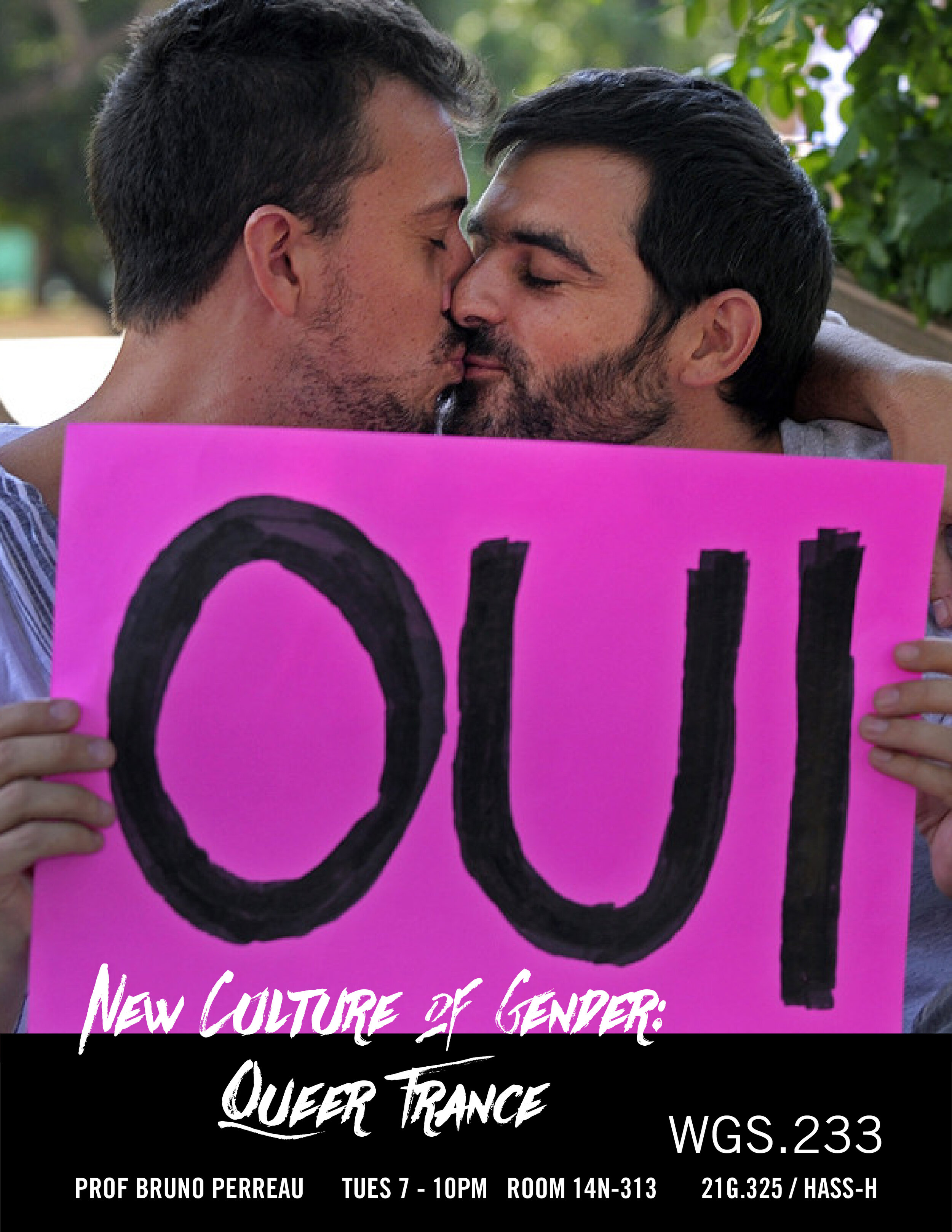WGS.S10 Feminist Data Ethics
New class!
Considers the ethical implications of new technologies and their impact on how we receive and transmit various types of data: medical, genetic, financial, personal. Data is being generated in many ways from our physical bodies, and this form of “datafication” has far-reaching ethical implications, particularly for historically marginalized and/or oppressed bodies, which are often subject to sexual objectification, surveillance, and other forms of control.
K.Surkan
New class!
Prereq: None
Units: 3-0-9
Mon 7 -10pm
Room 4-257
Considers the ethical implications of new technologies and their impact on how we receive and transmit various types of data: medical, genetic, financial, personal. Data is being generated in many ways from our physical bodies, and this form of “datafication” has far-reaching ethical implications, particularly for historically marginalized and/or oppressed bodies, which are often subject to sexual objectification, surveillance, and other forms of control.
K.Surkan
WGS.101 Introduction to Women's and Gender Studies
Drawing on multiple disciplines - such as literature, history, economics, psychology, philosophy, political science, anthropology, media studies and the arts - to examine cultural assumptions about sex, gender, and sexuality. Integrates analysis of current events through student presentations, aiming to increase awareness of contemporary and historical experiences of women, and of the ways sex and gender interact with race, class, nationality, and other social identities. Students are introduced to recent scholarship on gender and its implications for traditional disciplines.
A. Walsh
HASS-H, CI-H
Prereq: None
Units: 3-0-9
Mon + Wed 3 - 4:30pm
Room 4-145
Drawing on multiple disciplines - such as literature, history, economics, psychology, philosophy, political science, anthropology, media studies and the arts - to examine cultural assumptions about sex, gender, and sexuality. Integrates analysis of current events through student presentations, aiming to increase awareness of contemporary and historical experiences of women, and of the ways sex and gender interact with race, class, nationality, and other social identities. Students are introduced to recent scholarship on gender and its implications for traditional disciplines.
A. Walsh
WGS.110 Sexual and Gender Identities in the Modern US
Provides an introduction to the history of gender, sex, and sexuality in the modern United States, from the end of the 19th century to the present. Surveys historical approaches to the field, emphasizing the changing nature of sexual and gender identities over time. Traces attempts to control, construct, and contain sexual and gender identities. Examines the efforts of those who worked to resist, reject, and reform institutionalized heterosexuality and mainstream configurations of gendered power.
C.Horan
HASS-H
same subject as 21H.108
Prereq: None
Units: 3-0-9
Tues 7- 10pm
66-160
Provides an introduction to the history of gender, sex, and sexuality in the modern United States, from the end of the 19th century to the present. Surveys historical approaches to the field, emphasizing the changing nature of sexual and gender identities over time. Traces attempts to control, construct, and contain sexual and gender identities. Examines the efforts of those who worked to resist, reject, and reform institutionalized heterosexuality and mainstream configurations of gendered power.
C.Horan
WGS.111 Gender and Media Studies
Examines representations of race, gender, and sexual identity in the media. Considers issues of authorship, spectatorship, and the ways in which various media (film, television, print journalism, advertising) enable, facilitate, and challenge these social constructions in society. Studies the impact of new media and digital media through analysis of gendered and racialized language and embodiment online in blogs and vlogs, avatars, and in the construction of cyberidentities. Provides introduction to feminist approaches to media studies by drawing from work in feminist film theory, cultural studies, gender and politics, and cyberfeminism.
K. Surkan
HASS-H
Same subject as CMS.619J
Prereq: None
Units: 3-0-9
Tues 7 - 10pm
Room 4-257
Examines representations of race, gender, and sexual identity in the media. Considers issues of authorship, spectatorship, and the ways in which various media (film, television, print journalism, advertising) enable, facilitate, and challenge these social constructions in society. Studies the impact of new media and digital media through analysis of gendered and racialized language and embodiment online in blogs and vlogs, avatars, and in the construction of cyberidentities. Provides introduction to feminist approaches to media studies by drawing from work in feminist film theory, cultural studies, gender and politics, and cyberfeminism.
K. Surkan
WGS.125 Games and Culture
Examines the social, cultural, economic, and political aspects of digital games. Topics include the culture of gameplay, gaming styles, communities, spectatorship and performance, gender and race within digital gaming, and the politics and economics of production processes, including co-creation and intellectual property. Students taking graduate version complete additional readings and assignments.
T. L. Taylor
HASS-S
Same subject as CMS.616, 21W.768
Prereq: None
Units: 3-0-9
Wed EVE 7 - 10pm
Room 56-180
Examines the social, cultural, economic, and political aspects of digital games. Topics include the culture of gameplay, gaming styles, communities, spectatorship and performance, gender and race within digital gaming, and the politics and economics of production processes, including co-creation and intellectual property. Students taking graduate version complete additional readings and assignments.
T. L. Taylor
WGS.145 Globalization: The Good, the Bad and the In-Between
Examines the cultural paradoxes of contemporary globalization. Studies the cultural, artistic, social and political impact of globalization across international borders. Students analyze contending definitions of globalization and principal agents of change, and why some of them engender backlash; identify the agents, costs and benefits of global networks; and explore how world citizens preserve cultural specificity. Case studies on global health, human trafficking and labor migration illuminate the shaping influence of contemporary globalization on gender, race, ethnicity, and class. Develops cultural literacy through analysis of fiction and film. Enrollment limited.
M. Resnick
HASS-H, CI-H
Same subject as 21L.020
Prereq: None
Units: 3-0-9
Tues + Thurs 3 - 4:30pm
Room 4-249
Examines the cultural paradoxes of contemporary globalization. Studies the cultural, artistic, social and political impact of globalization across international borders. Students analyze contending definitions of globalization and principal agents of change, and why some of them engender backlash; identify the agents, costs and benefits of global networks; and explore how world citizens preserve cultural specificity. Case studies on global health, human trafficking and labor migration illuminate the shaping influence of contemporary globalization on gender, race, ethnicity, and class. Develops cultural literacy through analysis of fiction and film. Enrollment limited.
M. Resnick
WGS.160 Science Activism: Gender, Race, and Power
Examines the role scientists have played as activists in social movements in the US following World War II. Themes include scientific responsibility and social justice, the motivation of individual scientists, strategies for organizing, the significance of race and gender, and scientists' impact within social movements. Case studies include atmospheric testing of nuclear weapons and the nuclear freeze campaign, climate science and environmental justice, the civil rights movement, Vietnam War protests, the March 4 movement at MIT, and concerns about genetic engineering, gender equality, intersectional feminism, and student activism at MIT.
E. Bertschinger
HASS-E
Same subject as STS.021(J)
Mon + Wed 1 - 2:30pm
Room 1-246
Examines the role scientists have played as activists in social movements in the US following World War II. Themes include scientific responsibility and social justice, the motivation of individual scientists, strategies for organizing, the significance of race and gender, and scientists' impact within social movements. Case studies include atmospheric testing of nuclear weapons and the nuclear freeze campaign, climate science and environmental justice, the civil rights movement, Vietnam War protests, the March 4 movement at MIT, and concerns about genetic engineering, gender equality, intersectional feminism, and student activism at MIT.
E. Bertschinger
WGS.220 Women and Gender in the Middle East and North Africa
Provides an overview of key issues and themes in the study of women and gender relations in the Middle East and North Africa. Includes readings from a variety of disciplines, e.g., history, anthropology, sociology, literature, religious studies, and media studies. Addresses themes such as the relationship between the concepts of nation and gender; women's citizenship; Middle Eastern women's activism and the involvement of their Western "sisters" to this movement; gendered interpretations of the Qur'an and the example of the Prophet Muhammad; and the three H's of Orientalism (hijab, harem, and hamam).
L. Ekmekçioğlu
HASS-H
Same subject as 21H.263
Prereq: None
Units: 3-0-9
Thurs 12:30 - 3:30pm
Provides an overview of key issues and themes in the study of women and gender relations in the Middle East and North Africa. Includes readings from a variety of disciplines, e.g., history, anthropology, sociology, literature, religious studies, and media studies. Addresses themes such as the relationship between the concepts of nation and gender; women's citizenship; Middle Eastern women's activism and the involvement of their Western "sisters" to this movement; gendered interpretations of the Qur'an and the example of the Prophet Muhammad; and the three H's of Orientalism (hijab, harem, and hamam).
L. Ekmekçioğlu
WGS.222 Women and War
Examines women's experiences during and after war and genocide, covering the first half of the 20th century in Europe and the Middle East. Addresses ways in which women's wartime suffering has been used to further a variety of political and social agendas. Discussions focus on a different topic each week, such as sexual violence, women survivors, female perpetrators of genocide, nurses, children of genocidal rape, and the memory of war.
L. Ekmekcioglu
HASS-S
Same subject as 21H.381
Prereq: None
Units: 3-0-9
Tues 12:30 - 3:30pm
Room 2-103
Examines women's experiences during and after war and genocide, covering the first half of the 20th century in Europe and the Middle East. Addresses ways in which women's wartime suffering has been used to further a variety of political and social agendas. Discussions focus on a different topic each week, such as sexual violence, women survivors, female perpetrators of genocide, nurses, children of genocidal rape, and the memory of war.
L. Ekmekcioglu
WGS.225 The Science of Race, Sex, and Gender
Examines the role of science and medicine in the origins and evolution of the concepts of race, sex, and gender from the 17th century to the present. Focus on how biological, anthropological, and medical concepts intersect with social, cultural, and political ideas about racial, sexual, and gender difference in the US and globally. Approach is historical and comparative across disciplines emphasizing the different modes of explanation and use of evidence in each field.
A. Sur
HASS-S
Same subject as 21A.103J, STS.046J
Prereq: None
Units: 3-0-9
Tues + Thurs 9:30 - 11am
Room 14E-310
Examines the role of science and medicine in the origins and evolution of the concepts of race, sex, and gender from the 17th century to the present. Focus on how biological, anthropological, and medical concepts intersect with social, cultural, and political ideas about racial, sexual, and gender difference in the US and globally. Approach is historical and comparative across disciplines emphasizing the different modes of explanation and use of evidence in each field.
A. Sur
WGS.228 Psychology of Sex and Gender
Examines evidence (and lack thereof) regarding when and how an individual's thoughts, feelings, and actions are affected by sex and gender. Using a biopsychosocial model, reviews the following topics: gender identity development across the lifespan, implicit and explicit bias, achievement, stereotypes, physical and mental health, sexuality, interpersonal relationships, work, and violence. Limited to 20.
C. Kapungu
HASS-S
Prereq: None
Units: 3-0-9
Thurs 7 - 10pm
Room 14E-310
Examines evidence (and lack thereof) regarding when and how an individual's thoughts, feelings, and actions are affected by sex and gender. Using a biopsychosocial model, reviews the following topics: gender identity development across the lifespan, implicit and explicit bias, achievement, stereotypes, physical and mental health, sexuality, interpersonal relationships, work, and violence. Limited to 20.
C. Kapungu
WGS.233 New Culture of Gender: Queer France
Addresses the place of contemporary queer identities in French discourse. Discusses the new generation of queer authors and their principal concerns. Introduces students to the main classical references of queer subcultures, from Proust and Vivien to Hocquenghem and Wittig. Examines current debates on post-colonial and globalized queer identities through essays, songs, movies, and novels. Authors include Didier Eribon, Anne Garréta, Abdellah Taïa, Anne Scott, and Nina Bouraoui.
Taught in French.
B. Perreau
HASS-H
(Same subject as 21G.325[J])
Prereq: One intermediate subject in French
Units: 3-0-9
Tues 7 - 10pm
Room 14N-313
Addresses the place of contemporary queer identities in French discourse. Discusses the new generation of queer authors and their principal concerns. Introduces students to the main classical references of queer subcultures, from Proust and Vivien to Hocquenghem and Wittig. Examines current debates on post-colonial and globalized queer identities through essays, songs, movies, and novels. Authors include Didier Eribon, Anne Garréta, Abdellah Taïa, Anne Scott, and Nina Bouraoui.
Taught in French.
B. Perreau
WGS.250 HIV/AIDS in American Culture: Black Lives and Queer Bodies
Examines cultural responses to HIV/AIDS in the US during the first fifteen years of the epidemic, prior to the advent of highly active antiretroviral therapy. Students consider how sexuality, race, gender, class, and geography shaped the experience of HIV/AIDS and the cultural production surrounding it, as well as the legacy of this cultural production as it pertains to the communities most at risk today. Materials include mainstream press coverage, film, theater, television, popular music, comic books, literature, and visual art.
J. Terrones
J. Terrones
HASS-H
Prereq: None
Units: 3-0-9
Mon + Wed 9:30 - 11am
Room 4-146
During the first years of the HIV/AIDS crisis, in the eighties and early nineties, activists protested across major cities demanding government action, some of them still hooked up to IV drips and oxygen tanks; alongside them, writers, visual artists, and filmmakers continued creating, many up until their last breath. This course examines the relationship between different forms of cultural expression—from art to activism—during those first fifteen years of the HIV/AIDS pandemic, prior to the advent of highly active antiretroviral therapy. In particular, we will analyze the way in which mainstream narratives about the disease associated it with Blackness and queerness. With a focus on the work of Black queer and trans creators and activists, we will also study how literature, film, and visual art were mobilized against these mainstream narratives in order to effect changes in public consciousness and even policy. Finally, we will discuss the legacy of these cultural responses, particularly as it pertains to communities of color. We will do so through close readings across a variety of genres and media: fiction, poetry, film, theater, television, journalism, popular music, painting, sculpture, performance, and installation art. Some of the works we will analyze include: Samuel Delany’s The Tale of Plagues and Carnival; Octavia Butler’s Fledgling; Jamaica Kincaid’s My Brother; Sapphire’s Push and its screen adaptation Precious; the films of Marlon Riggs; and the latest season of the television series Pose.
J. Terrones
WGS.276 Cultures of Computing
Examines computers anthropologically, as artifacts revealing the social orders and cultural practices that create them. Students read classic texts in computer science along with cultural analyses of computing history and contemporary configurations. Explores the history of automata, automation and capitalist manufacturing; cybernetics and WWII operations research; artificial intelligence and gendered subjectivity; robots, cyborgs, and artificial life; creation and commoditization of the personal computer; the growth of the Internet as a military, academic, and commercial project; hackers and gamers; technobodies and virtual sociality. Emphasis is placed on how ideas about gender and other social differences shape labor practices, models of cognition, hacking culture, and social media.
H. Beltrán
Same subject as 21A.504(J), STS.086(J)
Prereq: None
Units: 3-0-9
Tues & Thurs 11am - 12:30pm
Room 56-180
Examines computers anthropologically, as artifacts revealing the social orders and cultural practices that create them. Students read classic texts in computer science along with cultural analyses of computing history and contemporary configurations. Explores the history of automata, automation and capitalist manufacturing; cybernetics and WWII operations research; artificial intelligence and gendered subjectivity; robots, cyborgs, and artificial life; creation and commoditization of the personal computer; the growth of the Internet as a military, academic, and commercial project; hackers and gamers; technobodies and virtual sociality. Emphasis is placed on how ideas about gender and other social differences shape labor practices, models of cognition, hacking culture, and social media.
H. Beltrán
WGS.277 Gender and Development
Explores gender roles, illuminates the power dynamics and root causes of inequality, and provides a framework for understanding gender dynamics. Develops skills to conduct a gender analysis and integrate gender-sensitive strategies into large- and small-scale development solutions. Prompts critical discussion about social, economic, and political conditions that shape gender in development. Begins with exploration of international development in the post-colonial era, using a gender lens, then provides students with the tools to integrate gender-sensitive strategies into international development work, with a particular focus on launching, building and scaling women's ventures. Opportunities may be available for international fieldwork over IAP. Students taking graduate version complete additional assignments. Limited to 12; must attend first class session.
E. McDonald, S. Haslanger
Same subject as EC.718
Subject meets with EC.798, 24.634
Prereq: None
Units: 3-0-9
Wed 9:30am - 12:30pm
Room N51-310
Explores gender roles, illuminates the power dynamics and root causes of inequality, and provides a framework for understanding gender dynamics. Develops skills to conduct a gender analysis and integrate gender-sensitive strategies into large- and small-scale development solutions. Prompts critical discussion about social, economic, and political conditions that shape gender in development. Begins with exploration of international development in the post-colonial era, using a gender lens, then provides students with the tools to integrate gender-sensitive strategies into international development work, with a particular focus on launching, building and scaling women's ventures. Opportunities may be available for international fieldwork over IAP. Students taking graduate version complete additional assignments. Limited to 12; must attend first class session.
E. McDonald, S. Haslanger
















